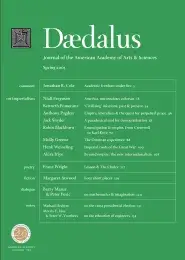Academic freedom under fire
Today, a half century after the 1954 House Un-American Activities Committee held congressional hearings on communists in American universities, faculty members are witnessing once again a rising tide of anti-intellectualism and threats to academic freedom.1 They are increasingly apprehensive about the influence of external politics on university decision making. The attacks on professors like Joseph Massad, Thomas Butler, Rashid Khalidi, Ward Churchill, and Edward Said, coupled with other actions taken by the federal government in the name of national security, suggest that we may well be headed for another era of intolerance and repression.
The United States paid a heavy price when the leaders of its research universities failed in the 1950s to defend the leader of the Manhattan Project J. Robert Oppenheimer; the double Nobel Prize chemist Linus Pauling; and the China expert Owen Lattimore. But a wave of repression in American universities today is apt to have even more dramatic consequences for the nation than the repression of the Cold War.
Compared to today, universities during the McCarthy period were relatively small institutions that were not much dependent on government contracts and grants. In the early 1950s, Columbia University’s annual budget was substantially less than $50 million. Its annual budget is now roughly $2.4 billion, and more than a quarter of this comes from the federal government, leaving research universities like it ever more vulnerable to political manipulation and control. Universities today are also more deeply embedded in the broader society than ever before. They are linked to industry, business, and government in multiple ways. Their links to the larger society inevitably lead to public criticism of the university when faculty members or students express ideas or behave in ways that some in the public find repugnant.
Can the leaders and the tenured faculty of our great research universities rise to the challenge of rebutting such criticism? Can we do better at defending academic freedom than our predecessors did in the 1950s? . . .
